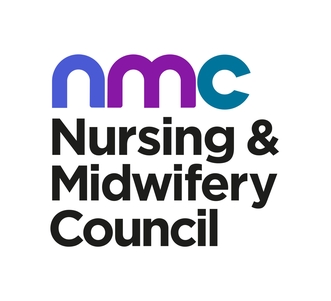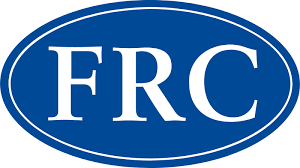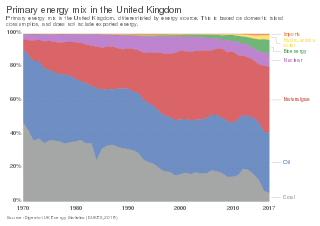Related Research Articles
The Office for National Statistics is the executive office of the UK Statistics Authority, a non-ministerial department which reports directly to the UK Parliament.
The United Kingdom's Climate Change Programme was launched in November 2000 by the British government in response to its commitment agreed at the 1992 United Nations Conference on Environment and Development (UNCED). The 2000 programme was updated in March 2006 following a review launched in September 2004.

The Nursing and Midwifery Council (NMC) is the regulator for nursing and midwifery professions in the UK. The NMC maintains a register of all nurses, midwives and specialist community public health nurses and nursing associates eligible to practise within the UK. It sets and reviews standards for their education, training, conduct and performance. The NMC also investigates allegations of impaired fitness to practise.

The Financial Reporting Council (FRC) is an independent regulator in the UK and Ireland, responsible for regulating auditors, accountants and actuaries, and setting the UK's Corporate Governance and Stewardship Codes. The FRC seeks to promote transparency and integrity in business by aiming its work at investors and others who rely on company reports, audits and high-quality risk management.

The current energy policy of the United Kingdom is the responsibility of the Department for Business, Energy and Industrial Strategy (BEIS), after the Department of Energy and Climate Change was merged with the Department for Business, Innovation and Skills in 2016. Energy markets are also regulated by the Office of Gas and Electricity Markets (Ofgem).
The Financial Consumer Agency of Canada (FCAC) is an agency of the Government of Canada that enforces consumer protection legislation, regulations and industry commitments by federally regulated financial entities. It also provides programs and information to help consumers understand their rights and responsibilities when dealing with financial institutions and promotes financial literacy.

The Unfair Commercial Practices Directive 2005/29/EC regulates unfair business practices in EU law, as part of European consumer law. It requires corresponding laws to be passed that incorporate it into each member state's legal system.
The Chartered Institute of Procurement & Supply (CIPS), until 8 October 2014 the "Chartered Institute of Purchasing and Supply", is a United Kingdom-based global professional body working for the purchasing and supply professions. With an objective of "leading excellence in procurement and supply", it aims to promote good practice and provides services for the benefit of a procurement community of 118,000 members.
A letter of recommendation or recommendation letter, also known as a letter of reference, reference letter or simply reference, is a document in which the writer assesses the qualities, characteristics, and capabilities of the person being recommended in terms of that individual's ability to perform a particular task or function. Letters of recommendation are typically related to employment, admission to institutions of higher education, or scholarship eligibility. Recommendation letters are usually specifically requested to be written about someone, and are therefore addressed to a particular requester, although they may also be issued to the person being recommended without specifying an addressee.
Historic England is an executive non-departmental public body of the British Government sponsored by the Department for Digital, Culture, Media and Sport. It is tasked with protecting the historic environment of England by preserving and listing historic buildings, scheduling ancient monuments, registering historic Parks and Gardens and by advising central and local government.

The Bribery Act 2010 (c.23) is an Act of the Parliament of the United Kingdom that covers the criminal law relating to bribery. Introduced to Parliament in the Queen's Speech in 2009 after several decades of reports and draft bills, the Act received the Royal Assent on 8 April 2010 following cross-party support. Initially scheduled to enter into force in April 2010, this was changed to 1 July 2011. The Act repeals all previous statutory and common law provisions in relation to bribery, instead replacing them with the crimes of bribery, being bribed, the bribery of foreign public officials, and the failure of a commercial organisation to prevent bribery on its behalf.

The Financial Conduct Authority (FCA) is a financial regulatory body in the United Kingdom, but operates independently of the UK Government, and is financed by charging fees to members of the financial services industry. The FCA regulates financial firms providing services to consumers and maintains the integrity of the financial markets in the United Kingdom.
The Auditor-General of New South Wales helps the Parliament of New South Wales hold government accountable for its use of public resources.
The Behavioural Insights Team (BIT), also known unofficially as the "Nudge Unit", is a UK-based global social purpose organisation that generates and applies behavioural insights to inform policy and improve public services, following nudge theory. Using social engineering, as well as techniques in psychology and marketing, the purpose of the organisation is to influence public thinking and decision making in order to improve compliance with government policy and thereby decrease social and government costs related to inaction and poor compliance with policy and regulation. The Behavioural Insights Team has been headed by British psychologist David Halpern since its formation.

The Competition and Markets Authority (CMA) is the competition regulator in United Kingdom. It is a non-ministerial government department in the United Kingdom, responsible for strengthening business competition and preventing and reducing anti-competitive activities. The CMA launched in shadow form on 1 October 2013 and began operating fully on 1 April 2014, when it assumed many of the functions of the previously existing Competition Commission and Office of Fair Trading, which were abolished. Currently, they have around 600 employees.
The Independent Press Standards Organisation (IPSO) is the independent regulator of the newspaper and magazine industry in the UK. It was established on 8 September 2014 after the windup of the Press Complaints Commission (PCC), which had been the main industry regulator of the press in the United Kingdom since 1990.
Social accounting is the process of communicating the social and environmental effects of organizations' economic actions to particular interest groups within society and to society at large. Social Accounting is different from public interest accounting as well as from critical accounting.

ukactive is a not-for-profit industry association, promoting the interests of commercial fitness gyms and community leisure centres, with more than 3500 organisations in membership. ukactive's central stated vision is to get more people, more active, more often and to improve the nation's health by promoting active lifestyles.

Our Power was an energy supply company backed by the Scottish government, one of the first in the UK to operate on a non-profit distribution basis. Our Power was entirely asset-locked, being owned by social housing providers, community organisations and local authorities.
At around £290 billion every year, public sector procurement accounts for around a third of all public expenditure in the UK. EU-based laws continue to apply to government procurement: procurement is governed by the Public Contracts Regulations 2015, Part 3 of the Small Business, Enterprise and Employment Act 2015, and the Public Contracts (Scotland) Regulations of 2015 and 2016. These regulations implement EU law, which applied in the UK prior to Brexit, and also contain rules known as the "Lord Young Rules" promoting access for small and medium enterprise (SMEs) to public sector contracts, based on Lord Young's Review Growing Your Business, published in 2013. In November 2016 an advisory panel of 24 entrepreneurs and business figures was formed to advise the government on purchasing goods and services from SMEs, and a campaign was launched to demonstrate that "government is open for business", with a target of increasing government spending with SMEs to 33% of all third-party public expenditure by 2020.
References
- ↑ Financial Conduct Authority (UK), Supplier Code of Conduct, 2019
- ↑ Government Commercial Function, Supplier Code of Conduct, version 2, published February 2019, accessed 27 September 2020